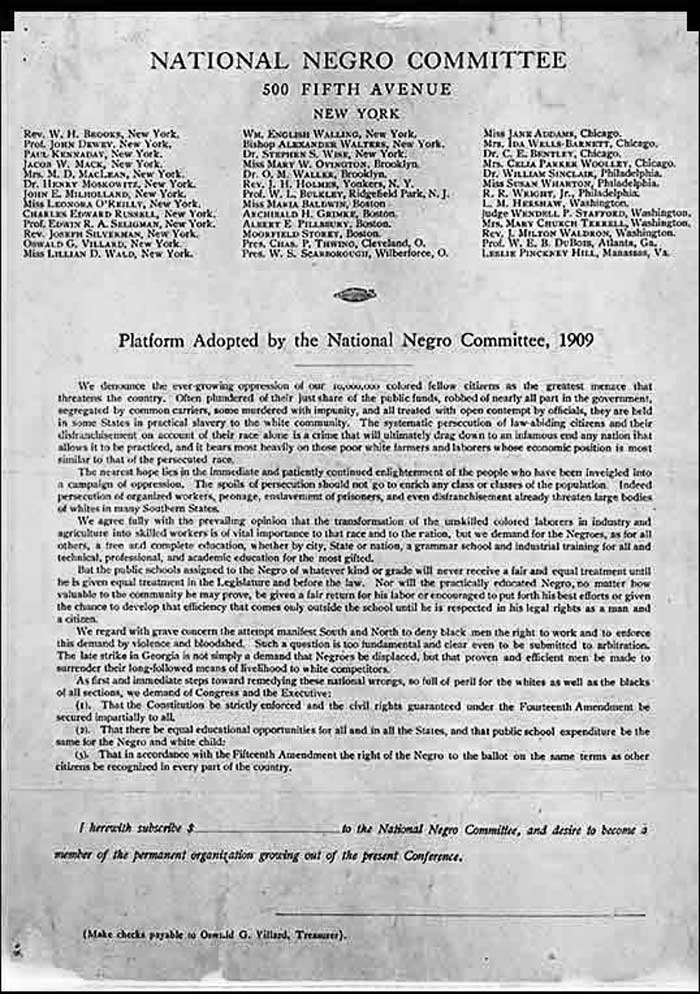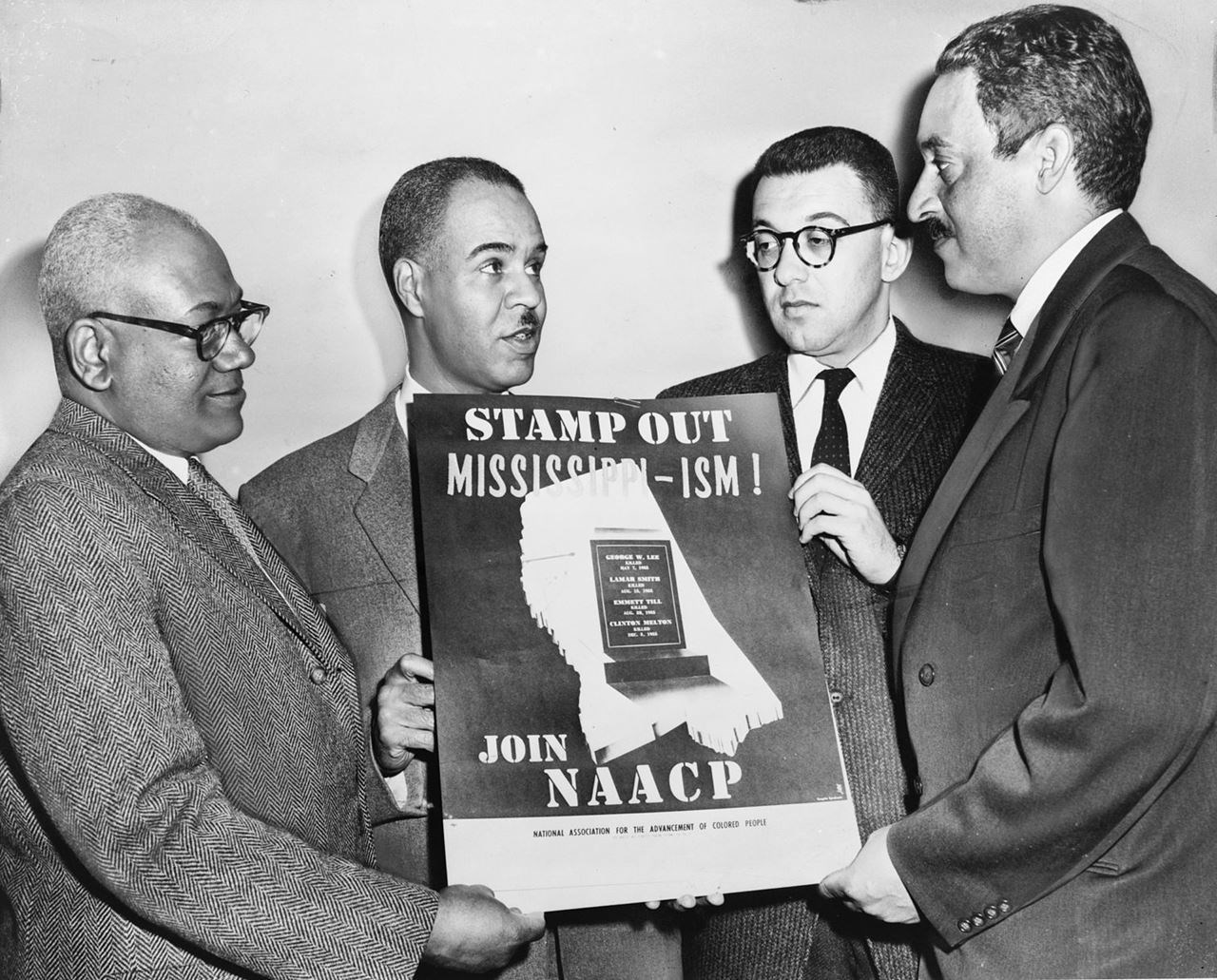The National Association for the Advancement of Colored People (NAACP) founding in 1909 marked a pivotal moment in American history. Born out of the pressing need to combat racial injustice, the NAACP emerged as a beacon of hope for African Americans and other marginalized communities. Its establishment was a response to the widespread discrimination and violence faced by Black people in the early 20th century. With a mission to ensure equality and civil rights for all, the organization laid the foundation for decades of advocacy, legal battles, and social change.
As we delve into the story of the NAACP founding, it is essential to understand the socio-political climate of the time. The post-Reconstruction era was marked by Jim Crow laws, segregation, and systemic racism. These oppressive conditions necessitated the creation of an organization that could effectively challenge the status quo and demand justice. The NAACP's founding brought together a diverse coalition of activists, intellectuals, and community leaders who were committed to dismantling racial barriers.
Today, the legacy of the NAACP continues to inspire movements for equality and justice worldwide. By examining the origins of the organization, we gain a deeper appreciation for the struggles and triumphs that have shaped its mission. This article explores the key figures, events, and milestones that defined the NAACP founding, providing insight into its enduring impact on civil rights advocacy.
Read also:Rambo Cast Unveiling The Legendary Ensemble That Defined Action Cinema
What Were the Circumstances Surrounding the NAACP Founding?
The NAACP founding was a direct response to the alarming rise in racial violence and discrimination during the early 1900s. Following the Plessy v. Ferguson Supreme Court decision in 1896, which upheld the doctrine of "separate but equal," segregation became entrenched in American society. This legal precedent led to widespread inequality and brutality against African Americans, including lynchings and other forms of racial terrorism.
In 1908, a race riot in Springfield, Illinois, shocked the nation and galvanized activists to take action. This event served as a catalyst for the NAACP founding, prompting a group of concerned citizens to convene in New York City the following year. The meeting resulted in the formation of the NAACP, with a mission to advocate for civil rights and challenge discriminatory practices through legal and educational initiatives.
Who Were the Key Figures in the NAACP Founding?
The NAACP founding was a collaborative effort involving a diverse group of individuals committed to social justice. Prominent figures such as W.E.B. Du Bois, Mary White Ovington, and Moorfield Storey played instrumental roles in shaping the organization's early vision and direction.
- W.E.B. Du Bois: A pioneering sociologist and civil rights activist, Du Bois was a founding member of the NAACP and served as the editor of its influential publication, The Crisis.
- Mary White Ovington: A white social worker and suffragist, Ovington was instrumental in organizing the initial meeting that led to the NAACP founding.
- Moorfield Storey: The first president of the NAACP, Storey was a prominent attorney and advocate for civil liberties.
How Did the NAACP Founding Impact Civil Rights Advocacy?
The NAACP founding marked the beginning of a new era in civil rights advocacy, setting the stage for future movements and achievements. By leveraging legal strategies, public education, and grassroots organizing, the organization achieved significant victories in the fight against racial discrimination.
One of the most notable accomplishments of the NAACP was its role in dismantling segregation through landmark legal cases, such as Brown v. Board of Education in 1954. This decision declared racial segregation in public schools unconstitutional, marking a major triumph for the civil rights movement. The NAACP's commitment to justice and equality continues to inspire activists and advocates worldwide.
Why Was the NAACP Founding Necessary?
The NAACP founding was a response to the dire need for an organized effort to combat racial injustice. In the early 20th century, African Americans faced numerous challenges, including limited access to education, employment, and housing. These systemic barriers perpetuated poverty and disenfranchisement, making it imperative to establish an organization that could effectively address these issues.
Read also:Exploring The Vibrant Tapestry Of S Danbury Connecticut
What Challenges Did the NAACP Face in Its Early Years?
In the years following the NAACP founding, the organization encountered numerous obstacles as it sought to advance its mission. Resistance from segregationist forces, limited financial resources, and internal disagreements posed significant challenges to its growth and effectiveness.
Despite these difficulties, the NAACP persevered, building a strong network of supporters and allies. Through its efforts, the organization laid the groundwork for future civil rights victories, demonstrating the power of collective action and determination.
Can the NAACP Founding Be Considered a Turning Point in American History?
Indeed, the NAACP founding represents a turning point in American history, marking the beginning of a sustained effort to challenge racial injustice and promote equality. By bringing together individuals from diverse backgrounds, the organization demonstrated the potential for unity and collaboration in the pursuit of justice.
The legacy of the NAACP founding continues to resonate today, as the organization remains at the forefront of civil rights advocacy. Its commitment to equality and justice serves as a powerful reminder of the importance of standing up against discrimination and inequality in all its forms.
Table of Contents
- What Were the Circumstances Surrounding the NAACP Founding?
- Who Were the Key Figures in the NAACP Founding?
- How Did the NAACP Founding Impact Civil Rights Advocacy?
- Why Was the NAACP Founding Necessary?
- What Challenges Did the NAACP Face in Its Early Years?
- Can the NAACP Founding Be Considered a Turning Point in American History?
- NAACP Founding and the Role of Education
- The Legal Battles of the NAACP: A Legacy of Justice
- NAACP Founding and Its Influence on Modern Activism
- Reflections on the NAACP Founding: Lessons for the Future
NAACP Founding and the Role of Education
Education played a crucial role in the NAACP founding and its subsequent activities. Recognizing the importance of knowledge and awareness in combating racial injustice, the organization emphasized the need for educational initiatives to inform and empower communities.
Through publications such as The Crisis, the NAACP provided a platform for discussing critical issues related to race and civil rights. These efforts helped to raise awareness and mobilize support for the organization's mission, reinforcing the importance of education in driving social change.
The Legal Battles of the NAACP: A Legacy of Justice
One of the most significant aspects of the NAACP founding was its focus on legal advocacy. By challenging discriminatory laws and practices in the courts, the organization achieved numerous victories that advanced the cause of civil rights.
From its early years, the NAACP established a robust legal arm, staffed by talented attorneys who were dedicated to fighting for justice. Their efforts laid the foundation for a legacy of legal battles that continue to shape the landscape of civil rights advocacy today.
NAACP Founding and Its Influence on Modern Activism
The impact of the NAACP founding extends beyond its historical achievements, influencing modern activism and social justice movements. By providing a model for effective advocacy and coalition-building, the organization has inspired generations of activists to continue the fight for equality and justice.
As we reflect on the legacy of the NAACP founding, it is clear that its principles and values remain as relevant today as they were over a century ago. The organization's commitment to justice and equality continues to inspire activists and advocates worldwide, ensuring that the fight for civil rights remains a vital part of our collective journey toward a more just and equitable society.
Reflections on the NAACP Founding: Lessons for the Future
As we examine the history of the NAACP founding, we are reminded of the enduring power of collective action and determination in the pursuit of justice. The organization's early successes and challenges offer valuable lessons for future generations of activists and advocates.
By learning from the experiences of those who participated in the NAACP founding, we can better understand the importance of unity, collaboration, and perseverance in the fight against discrimination and inequality. These lessons will undoubtedly continue to guide and inspire those who seek to build a more just and equitable world for all people.



